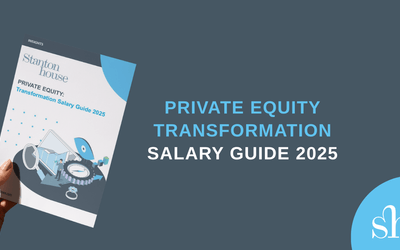
How U.S. Election Results Could Impact UK Private Equity in 2025
As Donald Trump returns to the U.S. presidency, the resulting policy shifts are anticipated to bring significant implications for UK Private Equity firms and their portfolio companies. With potential changes in the regulatory, tax, and trade landscapes, as well as effects on interest rates and market volatility, UK PE firms will need to assess these factors and consider strategic adjustments to navigate the new environment effectively.
Regulatory Environment
The Trump administration is expected to pursue extensive deregulation in the U.S, which could make American investments more attractive and stimulate cross-border investment activity. This may lead to increased competition in the UK market as U.S. based PE firms expand their reach. UK PE firms may need to adopt more competitive strategies and possibly more flexible deal structures to attract capital and secure opportunities amidst heightened competition.
Tax Policies
Proposed corporate tax cuts in the U.S. may make American investments more tax-efficient, drawing capital flows to the U.S. market. This shift could affect capital availability for UK PE firms, as the U.S. becomes a more attractive destination for investors seeking optimal after-tax returns. Additionally, UK portfolio companies with U.S. operations may benefit from these tax cuts, but they will need to address the complexities of international tax compliance. UK PE firms may need to revisit tax strategies for U.S. exposed assets and consider restructuring options to ensure tax efficiency.
Trade Policies
The anticipated protectionist stance of the Trump administration, including potential tariffs and renegotiated trade agreements, could impact UK portfolio companies that rely on U.S. markets or have supply chains connected to the U.S. Increased tariffs could raise operational costs for UK-based manufacturers and exporters. UK PE firms with portfolio companiesdependent on U.S. imports or exports may need to conduct risk assessments and explore alternative supply chain options or localisedproduction to manage these risks.
Interest Rates & Inflation
Potential fiscal policies, including increased government spending, may drive inflation and lead to higher interest rates in the U.S, potentially influencing global capital markets. For UK PE firms, this may increase financing costs for leveraged buyouts and impact valuation models for both new and existing investments. UK portfolio companies that rely on debt financing could face higher interest expenses, requiring robust cash flow management and planning to maintain financial stability.
Market Volatility
Policy changes and potential geopolitical tensions under the new U.S. administration could lead to increased market volatility. For UK PE firms, this volatility presents both risks and opportunities, especially when timing exits or determining valuations. UK PE firms may need to reassess their valuation methodologies, consider the timing of exits more carefully, and ensure that portfolio companies have robust risk management strategies in place to adapt to demand fluctuations and currency volatility tied to U.S. market exposure.
In light of these anticipated changes, hiring trends for senior finance professionals in Private Equity are likely to evolve. With increased competition, regulatory shifts, and a focus on tax-efficient structures, demand for finance leaders with strong cross-border tax expertise, regulatory knowledge, and strategic risk management skills will likely grow.
Furthermore, as UK PE firms seek to adapt their financing and exit strategies in response to market volatility, there will be a heightened need for CFOs and Finance Directors who can effectively navigate complex valuation models.
Working with Stanton House
If you would like to discuss your hiring plans for 2025, feel free to reach out to me for a discussion and browse through the exceptional customer experiences we have created for customers in the PE space here.


















